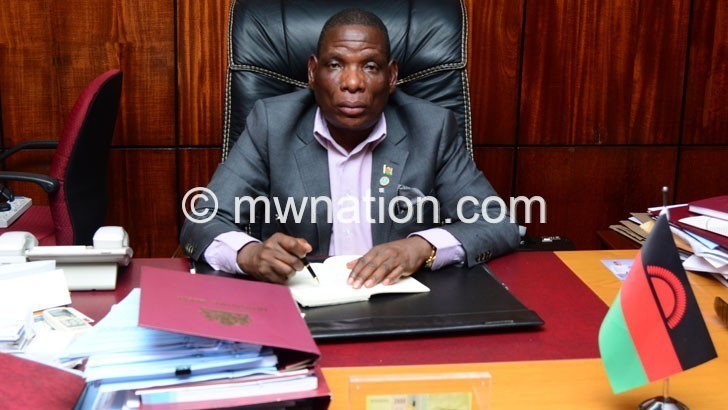Economist wants private sector lending safeguarded
University of Malawi’s Chancellor College economics professor Ben Kaluwa says fiscal authorities need to safeguard the rise in credit extended to the private sector by avoiding unnecessary borrowing going forward.
His sentiments follow the rise in private sector credit, which expanded by 11.5 percent in December 2018 compared to 0.4 percent the year before, according to the 2019 Malawi Government Annual Economic Report.
On the other hand, credit to the public sector receded to 24.2 percent in 2018 from 61.9 percent in 2017 where a total of K124.8 billion was extended to the public sector, of which K98.5 billion and K26.4 billion went to the central government and State-owned enterprises, respectively.

Figures contained in the report show that in terms of economic sectors, growth in credit came from the manufacturing sector at K11.7 billion, wholesale and retail trade sector at K7.7 billion followed by transport, storage and communications, real estate and construction sectors at K6 billion, K6 billion and K4.9 billion, respectively.
In an interview on Sunday, Kaluwa said the development signifies that the current macroeconomic environment has paved the way for private borrowers, a development which needs to be maintained.
He said what remains key is if this will translate to real economic growth as credit should go to growth-oriented sectors and less to government.
“What remains crucial is for us to also assess the increase in credit to government because even if credit to private sector expands, but if the same to government is still high than credit to private sector then the excessive government borrowing would still crowd out private borrowers,” he said.
Kaluwa said it is also critical to evaluate the composition of sectoral distribution of credit, adding that more credit needs to go to agriculture and manufacturing sectors and not the wholesale and retail as is the case.
Malawi Confederation of Chambers of Commerce and Industry (MCCCI) chief executive officer Chancellor Kaferapanjira, in an interview, noted that though the cost of finance has been coming down, but in the long-term finance is still slippery.
He said Malawi Agriculture and Industrial Investment Corporation (Maiic), which was launched last year, but is yet to be operational, is the hope for the private sector in terms of long-term borrowing.
Meanwhile, government budgetary operations reported a deficit of K341.1 billion in July, the first month of this financial year.
In the month, total revenues were recorded at K97.3 billion against total expenditures at K131.4 billion.





